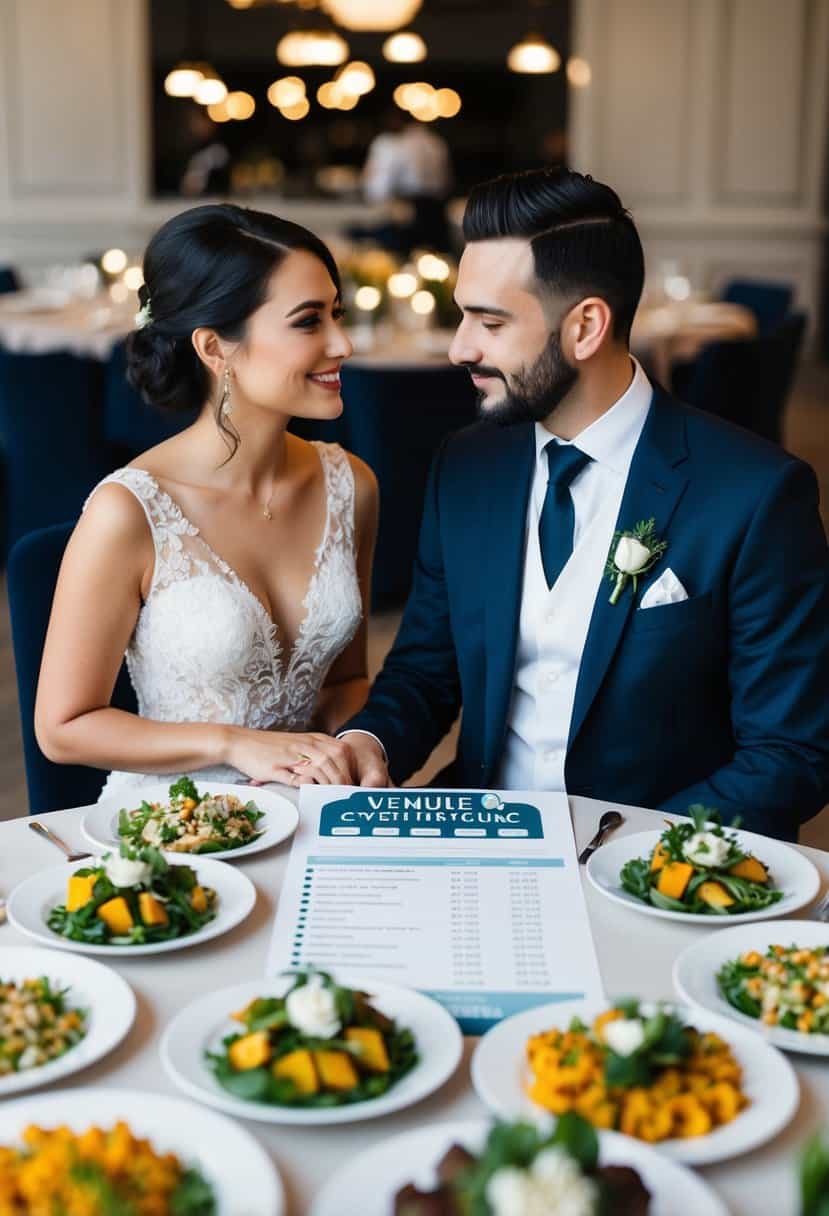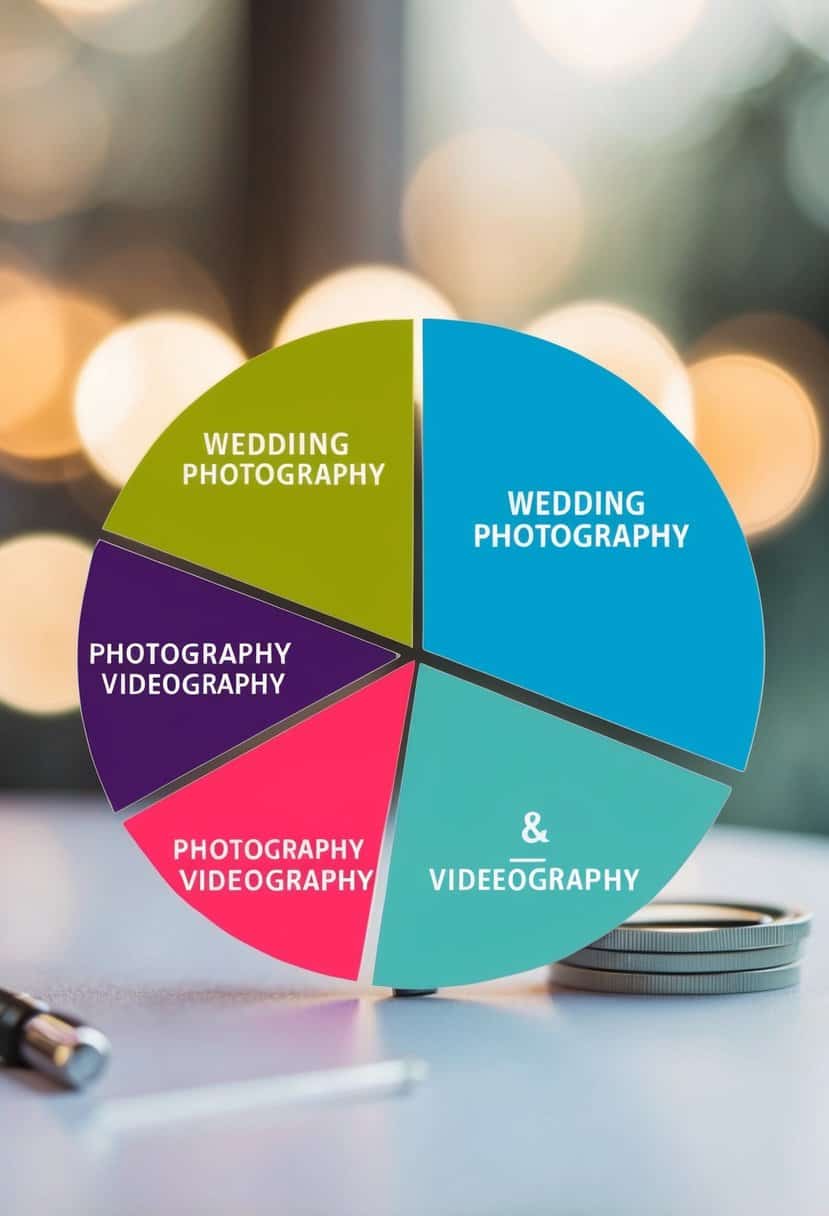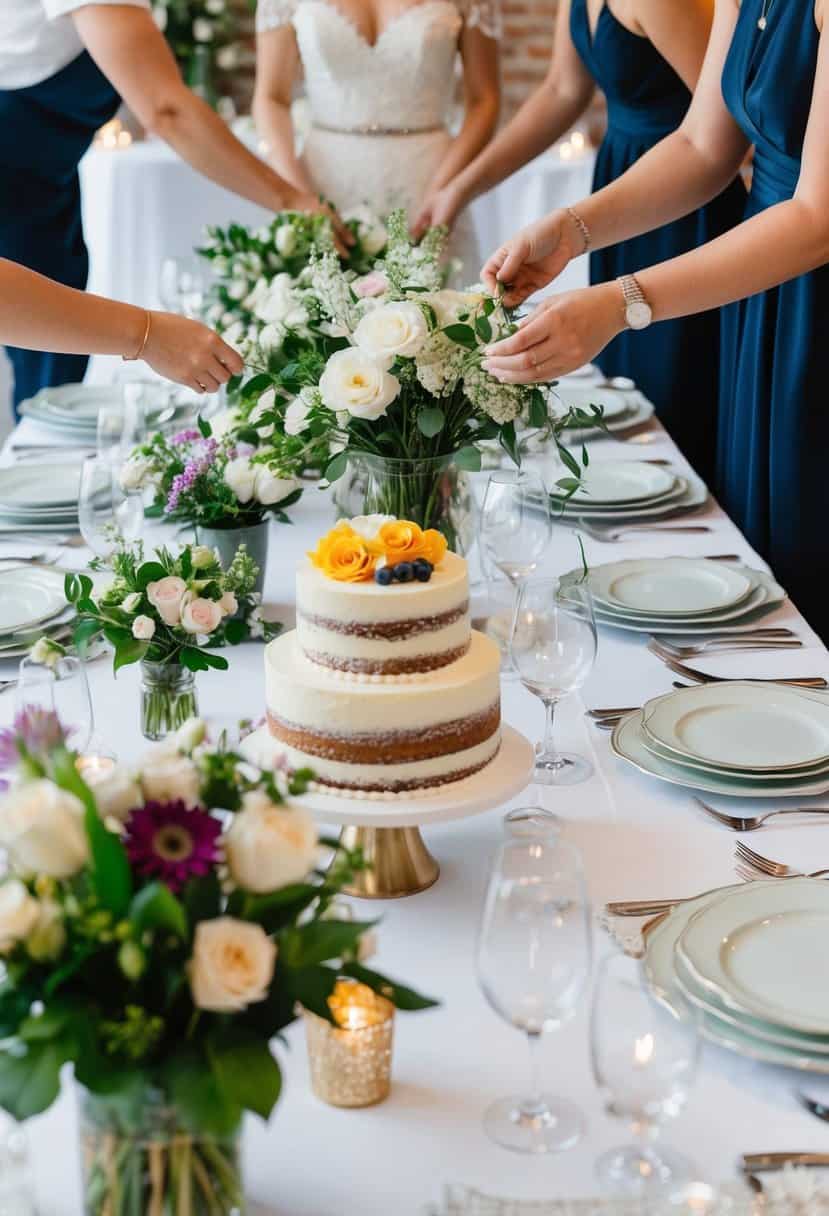How to Allocate a Wedding Budget: Simple Tips for Every Couple
Planning a wedding can be both exciting and overwhelming. One of the best ways to manage the stress is by setting a clear wedding budget. Allocating your wedding budget effectively is key to covering all your desired expenses without overspending. By focusing on where your money goes, you can ensure that your big day is memorable for the right reasons.

Most couples start with defining their priorities. Think about which aspects of the wedding mean the most to you. Do you want to invest in a stunning venue or focus more on catering?
Creating a wedding budget breakdown can help you allocate funds based on priority, ensuring that no key detail is overlooked.
Using resources like budget checklists can save you time and make the process smoother. By taking the average wedding budget into account, you can adjust your plans to fit within your limits while still achieving the dream celebration you envisioned. This approach helps you feel more in control and keeps the excitement alive as your wedding day approaches.
Understanding Your Total Wedding Budget

Creating a wedding budget involves several key steps. These include breaking down your expenses, setting up tools to manage them, and estimating common costs. It’s also important to reserve funds for unexpected expenses to prevent any last-minute stress.
The Basics of Wedding Budget Breakdown
Breaking down your budget makes it easier to manage. Usually, wedding venue expenses take up a significant portion, often around 38% of your budget, as described in this guide. Other elements like attire, music, flowers, and transportation need their own allocations too.
You can list out all these categories in percentages or dollar amounts. This way, you know exactly where your money is going and can adjust more efficiently if needed.
Setting Up Your Wedding Budget Spreadsheet
A wedding budget spreadsheet helps track your expenses. You can create one using software like Excel or Google Sheets. Start with columns for estimated costs, actual costs, and notes.
Include categories such as venue, catering, dress, and entertainment. This enables you to check if you are overspending in any area. Consistent updates to the spreadsheet ensure you stay within your budget, helping avoid financial surprises.
Finding the Average Cost of a Wedding
Knowing the average cost of a wedding gives you a realistic spending baseline. In the U.S., it hovers around $34,000 as noted in this resource. Understanding this can guide your decisions, especially when comparing costs like venue or catering.
Research costs in your area for more accuracy. You may want to use online wedding budget calculators to get an estimate tailored to your specific situation.
Allocating Funds for Unexpected Costs
Unexpected costs can pop up, so it’s smart to have a contingency plan. Set aside about 5-10% of your budget for emergencies. This emergency fund can cover any hidden wedding costs like extra décor or overtime charges from the photographer.
Think of this as your safety net. It reduces stress and keeps your big day running smoothly, without any financial hitches.
Deciding on the Venue and Catering

Choosing where you’ll exchange vows and how you’ll feed your guests are crucial steps in your wedding plans. These decisions can affect your budget and the overall feel of your big day.
Choosing the Perfect Wedding Venue
When picking a wedding venue, consider both your budget and your vision for the day. Locations like gardens, beaches, and historic buildings each offer unique settings. Look into what these venues provide and what you need to bring yourself.
Some venues might offer packages that include decoration and cleanup, while others may require you to handle everything.
Check if the venue has restrictions, like noise limits or a preferred vendors list. Also, remember to inquire about any additional service fees and taxes that might affect your budget. Availability could be a factor, so book your date as soon as possible to avoid disappointment. Sometimes, choosing a weekday or off-season date can also lead to savings.
Menu Planning and Catering Options
Once your venue is booked, it’s time to focus on the catering. Consider if you want a plated dinner, buffet, or a more casual setup like food stations or food trucks. Each of these options will have different costs and vibes. The catering style you choose should match the wedding venue and the atmosphere you want.
Talk to caterers about their menu planning and catering options. If you have vegetarian or vegan guests, or if anyone has allergies, make sure to include some choices for them.
Ask about what’s included in the price, such as equipment and table settings. Sampling the food beforehand is a good idea to ensure quality and taste match your expectations.
Styling Your Big Day

Your wedding day style sets the mood and atmosphere for the entire event. Consider the flowers, décor, attire, and beauty choices that reflect your personal taste and budget. Each element plays a significant role in making your day memorable and uniquely yours.
Selecting Flowers and Décor
Flowers and décor add color and vibrancy to your wedding. Start by choosing wedding flowers that match your theme and venue. Roses, lilies, and peonies are popular choices and offer a wide range of colors and meanings. Think about seasonal blooms, as they can be more affordable.
Discuss your vision with a florist or explore DIY decorations to keep costs down. For décor, consider items like table runners, candles, and elegant centerpieces.
Using a combination of purchased items and rented pieces can help you achieve your desired look. An experienced wedding planner can offer advice on where to get the best rentals.
Wedding Attire and Beauty
Your wedding attire should reflect your style and comfort. The wedding attire and beauty budget generally includes your dress or suit, along with accessories like shoes and jewelry.
Consider renting a designer gown if you’d rather save money or want to wear something unique.
Beauty expenses include hair and makeup. Book trial sessions to find the right look for your special day. Whether you choose professional services or a DIY approach, remember to allocate time for preparation on the wedding day. Also, don’t forget about wedding bands, as they are an essential part of your attire that symbolizes your union.
Managing Decorations and Rentals
Event rentals can be a smart way to set the right tone for your wedding without purchasing everything. Consider renting items like chairs, tables, linens, and lighting to enhance your venue.
Prioritize items that are visible in photos, such as ornate arches for the ceremony or stylish chairs for the reception.
Consult with rental companies for packages that fit your budget. If possible, visit showrooms to see items in person. DIY decorations can also be a cost-effective option, allowing you to add personal touches. Combine rentals with DIY elements to create a cohesive and beautiful setting that reflects your style.
Capturing Memories: Photography and Videography

Capturing the special moments of your wedding is important for preserving memories. Allocating part of your budget to photography and videography ensures you get high-quality images and videos from this special day.
Hiring a Professional Photographer
Choosing a skilled photographer is crucial for getting beautiful photos. You want someone who has experience with weddings and understands how to capture those candid, emotional moments.
When selecting a photographer, check their portfolio to see if their style matches what you’re looking for.
Ask about packages that include different hours or additional photographers. Get a clear understanding of what is included, like albums or digital images. Booking early can secure your date and may offer better rates.
Consider meeting the photographer in person. This helps you feel comfortable and make sure they understand your vision. A good rapport can lead to more natural and genuine photos.
Incorporating Videography
Videography adds another layer to capturing your wedding day. Videos can capture sound, movement, and the atmosphere in a way photos cannot.
Hiring a videographer allows you to relive the vows, speeches, and first dance.
Decide how you want your video to look. Do you prefer a highlight reel with key moments or a full-length video of the entire day? Discuss these preferences with potential videographers.
Budgeting for videography might mean allocating about 10-15% of your wedding budget, similar to photography costs. Be sure to ask about editing options, as this can impact both cost and the final product.
The Finishing Touches

When finalizing your wedding plans, focus on elements that leave lasting impressions. Thoughtful selections in music, guest communications, and gifts add charm and reflect your unique style. Seamless coordination of these details elevates your celebration.
Music and Entertainment
Your wedding’s atmosphere depends a lot on music and entertainment choices. Decide between a live band or a DJ.
A DJ can play a wider range of music, often for a lower price, and they can also handle entertainment transitions.
Create a playlist with songs for key moments. Think of your ceremony entrance, first dance, and even the last song of the night.
Align song choices with your style. Consider background music during dinner and lively sets when guests hit the dance floor. Music helps set the mood, making each moment memorable.
Guest List and Invitations
The guest list defines much of your wedding atmosphere. Keep it intimate or go big depending on your budget and venue space.
Knowing your budget helps decide the size of your list, as your choices affect food, space, and even invitations.
For wedding invitations, consider going digital. Digital invitations save on costs and are eco-friendly. If you prefer traditional invites, search for quality yet affordable wedding stationery. Stunning designs that fit your theme create a lasting impression. Handwritten notes or personal touches can also enhance your stationery’s charm.
Favors and Gifts
Wedding favors and gifts are small gestures of gratitude for your guests. Opt for items that are meaningful or useful.
Think of personalized keychains, candles, or edible treats. Make sure to keep the favors within budget while ensuring they are thoughtful.
Limit the expense by getting creative. You might make DIY favors or buy in bulk to reduce costs.
Consider gift packaging that matches your wedding theme. Little details like this add cohesion and a personal touch to your day.
Remember, it’s the sentiment that counts, not the price.



